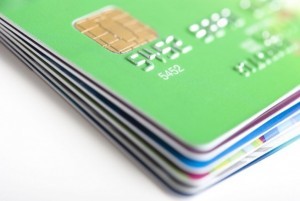We have all been guilty of paying a bill late or charging too much on our credit cards once in a while, but at some point, these infrequent mistakes may turn into a big financial problem. Unfortunately, ignoring the signs of a money problem will only allow your situation to get worse. By recognizing the signs of money problems, you can take the steps that you need to overcome your financial hardship.
1. You do not know your account balances
If you have no idea how much money is in your bank account, this could be the sign of a money problem. You may use your debit card thoughtlessly and freely while you assume that you have enough money to cover the charge. However, you might not always be right, and failing to know how much you have in your account could result in overdraft fees.
2. Review your credit card habits
Do you find yourself using your credit card for everyday purchases like gas or groceries? If so, you may be living above your means. Chances are that you are living paycheck to paycheck, and racking up charges on your card is only putting you further into debt. Reviewing your credit card usage can help you to better understand the extent of your money problems.
3. You are only paying the minimum on your credit cards
If you are only paying the minimum amount due on your credit cards every month, you are not coming close to paying down your principal balance or interest. By paying more than the minimum amount due, you could shave years off of the life of your credit card debt.
4. Check your credit score
Checking your credit score can help you to see the big picture in terms of your financial health. This information will outline your outstanding debt and available credit. Your credit score can also gauge your overall financial wellness.
5. You notice bills stacking up
Is a corner of your kitchen table dedicated to bills and other notices that continually pile up without ever being opened? This is a good sign that you have a money problem and you may be drowning in debt. To better understand the extent of your problem, it is important to contact the creditors to discuss how far behind you are and what you can do to rectify the situation.
6. You find yourself paying one debt with another
Are you constantly looking for balance transfer deals to transfer the amount you owe on one credit card to another? Or do you pay your mortgage or car payment each month with a credit card? Paying toward one debt using another form of debt is a good sign of a financial problem.
7. You are turned down for a loan
If you have been turned down for a personal loan or a credit card, you likely have a very low credit score. This information led the lender to believe that lending you money would be too much of a risk, as you have not demonstrated the willingness and ability to repay a loan.
8. You find yourself borrowing money from friends
Are you constantly asking your friends or family to borrow money? If you are not able to afford an expense and need to get a loan, there is a good chance that you are living above your means. You are probably already in financial trouble, so it is time to reevaluate your budget.
9. You have no retirement savings
Failure to save toward your retirement is another sign that you are on the verge of financial problems. This could mean that your financial priorities are misplaced, or that you simply do not have the extra income to put toward retirement because of your other expenses. Either way, failure to save toward retirement can cause big financial problems later in your life.
10. You frequent payday loan stores
Payday loan companies offer short-term loans with extremely high interest rates for people who are willing to put down their vehicle title or next paycheck as collateral. The fact that you have ever taken out a payday loan is a good indication that you are spending more than you are making.
If you have recognized the signs that you have a money problem, there is hope, but only if you take action. Contact a financial counselor for information on how to set up a proper budget and to pay down your debt.








Comments